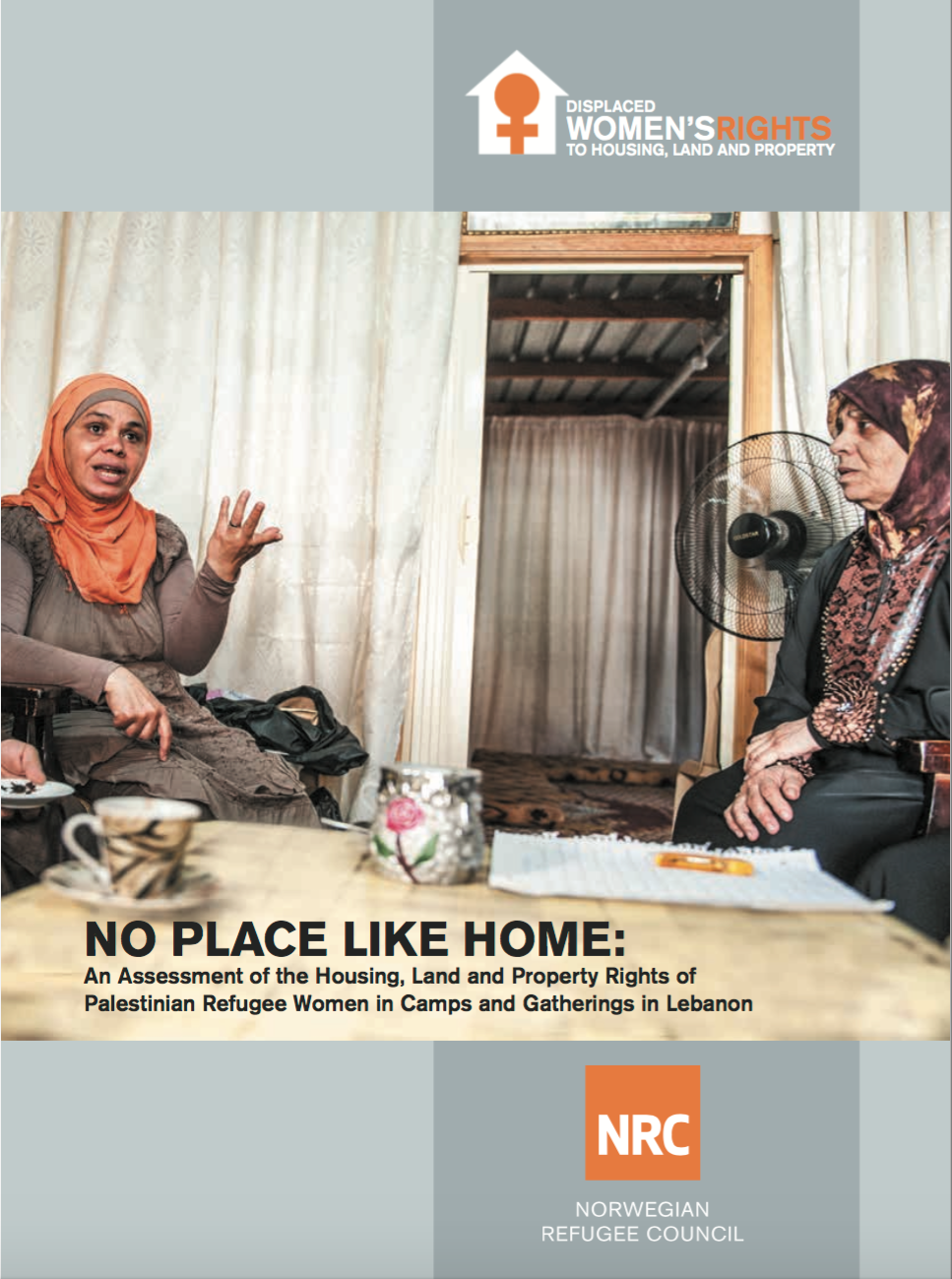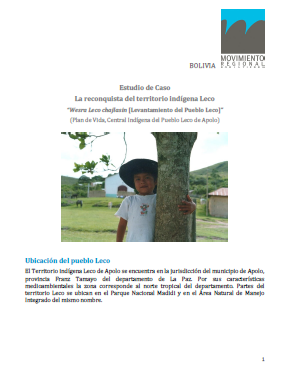Simanjiro Conservation Easement
Short article discussing challenges and solutions to Simanjro Conservation Easement in northern Tanzania.
NO PLACE LIKE HOME: AN ASSESSMENT OF THE HOUSING, LAND AND PROPERTY RIGHTS OF PALESTINIAN REFUGEE WOMEN IN CAMPS AND GATHERINGS IN LEBANON
Palestinian women living in refugee camps and gatherings in Lebanon have little opportunity to realise their HLP rights. They face the double discrimination, challenged by both formal Lebanese law and familial Palestinian social systems.
In 2001, the Lebanese Government passed a law forbidding people who do not hold citizenship to a recognised state from getting property rights in the country. This has left many Palestinian refugees either losing property that they owned, or unable to inherit property from family members.
NOWHERE TO GO: Displaced and returnee women seeking housing, land and property rights in South Sudan
Land is of tremendous importance in South Sudan. It represents community, belonging and place as well as provides a source of income, subsistence and survival. Control of land and resources was at the centre of the conflict that lasted five decades, leading to South Sudan’s independence in 2011.
Estudio de Caso La reconquista del territorio indígena Leco
El año 1999, tres años después de la promulgación de la Ley agraria nacional, el pueblo Leco presentó su demanda de titulación por 658.006 hectáreas ante el Instituto Nacional de Reforma Agraria que es la instancia encargada de tramitar los procesos de titulación de tierras. La petición marca un hito en la histórica lucha por consolidar el territorio Leco pues, por primera vez buscan obtener la aceptación del Estado incorporándose a un proceso administrativo que les permita acceder a la propiedad de la tierra.
Millennium Ecosystem Assessment II
- Land and water scarcity as drivers of migration and conflicts?
The Millennium Ecosystem Assessment projects that the intensification of freshwater scarcity in combination with continuous water extraction from delicate dryland ecosystems is likely to exacerbate desertification, thus leading to a downward spiral of ecological deterioration and a precarious depreciation of livelihoods in many developing regions. This in turn can push people to migrate, which can have far reaching implications affecting local, regional, and even global political and economic stability.
Country Study 2:
Somalia - no central government, but still functioning
Somalia is the longest known case in modern times of a country whose central state has ceased to exist for many years. Although Somalia is often said to be a country in chaos and anarchy, a new form of social organization emerged here some time ago. Indeed, many Somalis appear to have adapted well to their country's statelessness.
Country Study 3:
Sierra Leone - a state on the move
After ten years of civil war in which grave human rights violations and atrocities were committed, especially against women and children, Sierra Leone was regarded as a «failed state». A massive UN peacekeeping mission managed to demobilize the combatants in 2002 and peace was restored. Public institutions have begun to resume their functions and the economy is showing signs of recovery. Nonetheless, the country's stability and structures are still fragile. So how can development cooperation contribute towards stabilizing Sierra Leone?
Fragile states: What can we learn from the country studies?
Afghanistan, Sierra Leone and Somalia: these three countries stand for different histories of a fragile state.The author of this article analyses different case studies to determine the various causes, such as the role of ethnic identities, claims to power by clans and other sub-state groups, or the lack of societal representation within the governments. For the author, the greatest risk to a state is violence, which can quickly spiral out of control in a weak state and lead to chaos.
IDPs (Category archive from BurmaNet News)
Articles from this category from BurmaNet News)
My children and I have nowhere to go: Kachin IDP
Despite a number of peace talks having been conducted between the central government and Kachin Independence Army (KIA), there is no sign of the war ceasing in Kachin state. The ongoing armed conflict has been driving thousands of civilians out of their villages. Many IDPs are now living in church supported camps along with relief from international humanitarian agencies. IDPs living in crowded camps with limited support face various obstacles as they cannot practice their livelihood anymore.
Humanitarian Bulletin - Myanmar Issue 7: December 2015 (English and Burmese)
In this issue: 2015 displacement in Kachin and Shan...
2,000 still displaced in southern Shan...
Winter needs for IDPs in Sumprabum....
Cash assistance following floods...
Providing access to reproductive healthcare...
Ending recruitment of child soldiers.....HIGHLIGHTS:
• Around 100,000 people were newly displaced in Kachin and Shan states in 2015; about 90 per cent have since returned home...
• Almost 2,000 people remain displaced following armed conflict in southern Shan...







